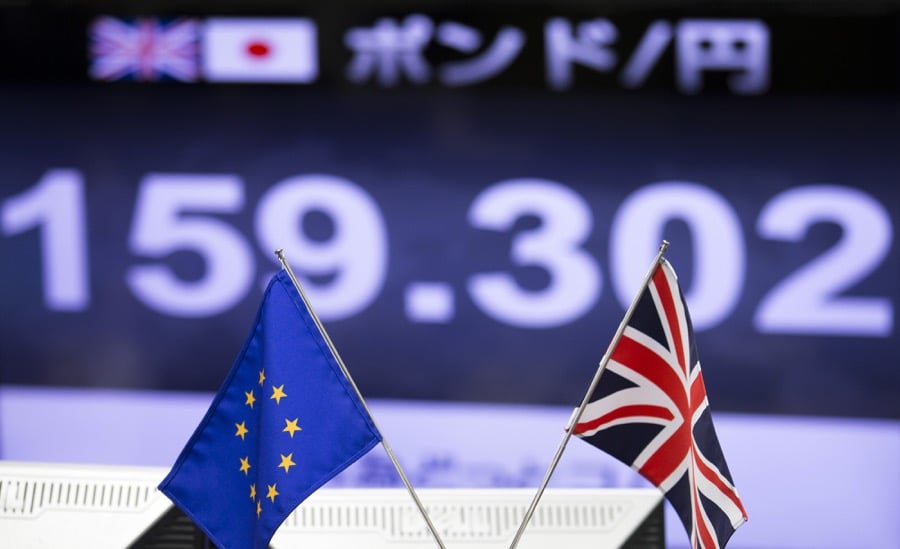U.S. stock futures plunged, as results of the U.K. referendum on European Union membership pointed toward a vote to leave the bloc after more than four decades of membership, fanning speculation that a divided Europe would put another brake on already fragile global growth.
S&P 500 Index contracts slumped 4.9% at 11:56 p.m. in New York, joining losses in equity futures in the U.K. The pound slid the most on record to its weakest since 1985, while the yen rallied on demand for haven assets. The Oddschecker average probability of Brexit prevailing surged to 99.75%, surging from less than 30% before the first results were disclosed at 7 p.m.
(Related: Mohamed El-Erian sees 'common element' between Brexit vote, negative rates, strange politics and Fed policy)
The losses are raising the possibility of triggering the Chicago Mercantile Exchange's limit down price curbs. The rules come into effect when S&P 500 contracts decline 5% from a reference price that is calculated in the last 30 seconds of trading on the previous day. E-mini futures on the benchmark gauge settled yesterday at 2,105.75, implying a trigger at around 2,000.
Central banks have sounded the alarm over a potential Brexit, with chiefs of the Fed, Bank of Japan and Bank of Canada all citing the vote as a potential disruption to the global economy. Federal Reserve Chairwoman Janet Yellen said yesterday the decision could have consequences for financial markets, and “in turn for the U.S. economic outlook.” The International Monetary Fund had warned that a so-called Brexit risked damage to the U.K. economy.
“Risk-off is back,” Joe Quinlan, chief market strategists at U.S. Trust, Bank of America Private Wealth Management, said by phone. “We've got a fragile, weakening economy and the last thing we need is for one of the stronger developed economies to falter. If it's a leave vote, you just chipped away a little bit at global growth for the next 12 months.”







